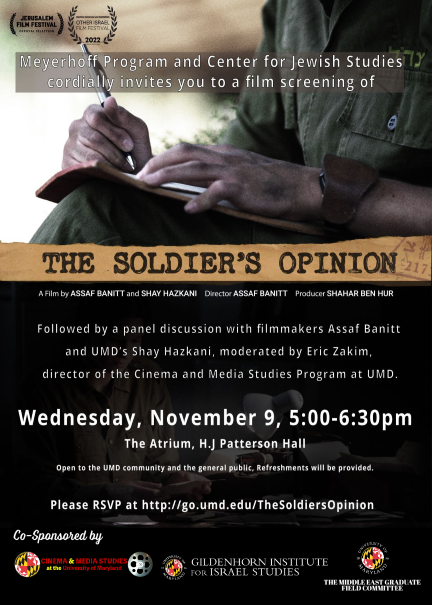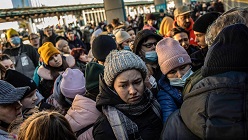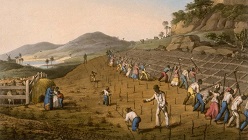By Chris Carroll
Mar 01, 2022
It’s not that anyone doubted Russian President Vladimir Putin’s willingness to roll his nation’s armed forces into another country, as he’d done in Georgia in 2008 and Ukraine's Crimean Peninsula in 2014. But the world remained in shock five days after Russia’s nationwide assault on one of Europe’s largest countries, with one question reverberating: Why?
As a first round of peace talks concluded and video surfaced of deadly apparent cluster-bomb strikes hitting a school in the Eastern Ukrainian city of Kharkiv yesterday, Maryland Today discussed that question and others with two University of Maryland experts on the region. Government and politics Professor Vladimir Tismaneanu is a longtime scholar of the USSR who has in recent years focused his studies on Putin’s unwillingness to let go of the Soviet legacy, and Associate Professor of history Piotr H. Kosicki studies political revolutions in Europe and their worldwide ripples, with an emphasis on Central and Eastern Europe.
What chances do the new peace talks have of succeeding?
Tismaneanu: I may be wrong, but it seems to me that these are not real peace talks. Putin does not want peace with an independent and democratic Ukraine. His goals are the country's complete defeat, humiliation and capitulation. He does not know and doesn't want to know how to negotiate.
Kosicki: It’s hard to take them seriously. They’re being held on the border of Belarus, which could be a belligerent in this war by the time this article publishes, and for all intents and purposes is already a part of the attack against Ukraine. This should have been held on neutral ground such as Israel or Turkey. The talks are a gesture Ukraine had to make to the international community. Russia is not prepared to accept the kind of sovereignty that (President Volodymyr) Zelensky’s government is rightly going to assert for Ukraine.
How would you describe the historic moment we’re all experiencing now?
Tismaneanu: The only crisis between the East and the West which can be compared to this for me is the Cuban missile crisis. (Soviet Premier Nikita) Khrushchev could not simply say, ‘I was wrong, I made a huge mistake.’ All his colleagues on the Politburo realized that he was unpredictable, that he had miscalculated on the deployment of nuclear missiles on Cuba, and led the world to nuclear brinksmanship.
Kosicki: There are two comparisons, and I wrestle with both of them. Maybe the most obvious one—and one that President Zelensky put forward himself—is the Hitler analogy. When he traveled to Munich for just a few hours before the fighting really got under way, Zelensky told the world he didn’t want to see appeasement like the 1938 British and French appeasement of Hitler. And then of course there is the analogy to the Cuban missile crisis—but to be clear, what we’re seeing today is not principally a showdown between US and Russian heads of state like in 1962; instead today’s story is about the Russian president’s criminal rampage against the sovereign people of Ukraine.
What do these comparisons suggest might happen?
Tismaneanu: There was a question at the time of the missile crisis—the same kind of question being asked now—of what was in Nikita Khrushchev’s mind at that moment. They waited to act in Moscow, but in 1964, the Central Committee (of the Communist Party) relieved him from the position of first secretary of the party and prime minister. The most important charge on the indictment was “hare-brained schemes.” We don’t know what’s going to happen now, but Khrushchev was demoted less than two years later, and I don’t doubt that in Moscow right now, members of what we might call a praetorian guard are considering a succession.
What is going on in Putin’s mind? What is driving this?
Tismaneanu: Putin is a history buff, and God forbid a history buff is the dictator of a nuclear power. Hitler was also a history buff. He imagined himself Napoleon, combined with Frederick the Great. Putin probably imagines himself as Czar Alexander I, who defeated Napoleon in 1812. He thinks of himself as Russia’s savior, a redeemer, a predestined hero. His vision of politics is completely Manichean: the vicious “them” versus the virtuous “us.” Putin's worldview is apocalyptically messianic. Volodymyr Zelensky is fully aware of these ideological fantasies. This explains his skepticism about Russia's readiness to accept a cease-fire.
Kosicki: You can also look at medieval history and make the case that Russia, understood as the legacy of Muscovy, is really a province of Ukraine. History can provide us with whatever we want, if we’re willing to manipulate it sufficiently.
There are parallels in this situation with Hitler and the 1930 and ‘40s that make sense, in terms of Putin fabricating a historical justification for this invasion, and the way he has manipulated and misused language like “genocide”—twisting and corrupting the lessons and remembrance of the Holocaust—in trying to lay out his worldview and pseudo-rationale for invading. But I also believe there is a lesson about de-escalation here from the 1960s; it’s predicated on the judgment call of whether Putin is actually rational or not. Is he cynical or committed to his worldview? I think that in retrospect, very few historians would say Hitler was cynical, that he was not committed to his ideology. We don’t yet know to what extent that’s true for Putin, but I tend to think that unfortunately, he’s committed.
Keeping that in mind, what should the United States do?
Kosicki: I’ve been asked that several times and am very much at a crossroads in my own mind. I am very frightened by the fact that Putin controls the world's largest nuclear arsenal; and if he were actually unhinged, and he felt threatened or humiliated, or if there were the threat of a palace coup—it’s important to understand he has made no preparations for succession ever—then there might be very little holding him back from sowing chaos on an apocalyptic level.
On the other hand, that sounds like alarmism, and I don’t like alarmism because it backs us into a corner. I would love to see the U.S. play a very nuanced game, but at the same time, be very decisive in its steering of NATO and NATO allies. But in some ways, the ball seems to be in the court of the European countries—and maybe soon also the People’s Republic of China, for which the outcome of Putin’s war has potentially huge implications. Perhaps the most significant news of the last few days has been the announcement of the rearmament of Germany on a scale not seen since the Third Reich. And given his country’s history with Germany, that means something to Putin.







